There will be no break between cours of Ao Ashi – not a cour, or even a week. The series continues uninterrupted next Saturday, with 12 more episodes in summer. After that, who knows – once upon a time an NHK-Production I.G. sports anime with manga sales like this would have been pretty much a lock for multiple seasons but now, in the current production committee environment, who knows. All a fan can do is hope for the best, but at least – unlike with a lot of the anime I follow – there’s reason to be hopeful.
This was just about a wire-to-wire action episode. And it gets pretty deep into the weeds with soccer theory, but as I said, that can be almost as complicated as string theory. The beautiful game is not simple – all those moving parts whose movement is precisely interconnected. To a certain extent that movement is predictable, though the higher you go up the ladder the less that’s true. Esperion may be a professional training organization but these are still schoolboys, and at this level the ability to truly confound expectations is a pretty rare thing. So once you learn how to do what Ashito learned, it’s like the key to the castle.
In a game like this where the skill levels of the two sides are so different, it’s the better team that largely determines how the game plays out. If they lose it’s going to come down to some combination of self-sabotage and bad luck (and even pro soccer if full of both). The lesser side will play most of their men behind the ball and try to hit on the counter (if they’re even that ambitious). And if they happen to get a nose in front as Seikyou did, the second half will likely be marred by “game management” – strategic time-wasting in the form of phantom injuries, slow restarts, and substitutions at the death. This is high school-level football, but the pros are no different in this respect.
For Ashi-kun, once he’s figured out what Date assigned him this is not an opponent that can do much more than park the bus and waste time. Soccer is all about drawing the other team out of position to create gaps to attack. It’s a lot harder to create those gaps when they pack 8 or 9 players into their own box, but it can be done – as witness Ashitio’s brilliantly timed dummy run which leads to Eisaku’s tying goal. He even points Asari where to pass the ball. And plenty of goals are scored from where Eisaku does here, just outside the penalty area.
The nature of Kanpei’s frustration with Ashito is obvious – the veterans talk about fundamentals in practice every day, but he was never a receptive audience. But Kanpei is a smart kid – he recognizes that What Ashito said about strikers is exactly right. If you’re not selfish you don’t succeed in that role, and the instinctual approach he brings to the game is unhindered by the years of drilling Kanpei and the others have received. Understanding soccer systematically is important but it can make you predictable if you’re unable to think past that.
If you watched Hikaru no Go you may remember that early on Hikaru demonstrated an ability to recreate games from memory, something which caused Sai to suspect he had a lot of potential. What Ashito can do in terms of placing every player on the field is a similar natural gift which a few soccer players have. But it didn’t really help him until he began to understand the nature of how those players interact with each other, in much the same way Hikaru needed to grasp why those moves were being made – and why some were good, and some not so much.
The ability Ashi demonstrates here, the titular “eagle eye”, is something you see more in deep-lying playmakers like Andrea Pirlo and Xavi Hernandez than forwards. It’s going to be interesting to see Ashito learn to leverage that skill from the front. As for Hana his vision isn’t quite so unerring, as what may be rather obvious to us (maybe they wouldn’t call what they do flirting, but it certainly is) isn’t obvious to him. But that bit with calling his shot and scoring a goal (the winning goal) “for her” definitely represents a serious level up.
Setting the table Xaxi-style for the second cour, a couple of new elements are introduced in stoppage time. A new coach, who Fukuda-san discusses Ashito with, and a new player. That would be Kuribayashi Haruhisa, already making his J-League debut at the age of 16. And when Anri-chan takes an interest in Ashi-kun and asks him to do some image training by following Kuribayashi on the TV at the yakiniku restaurant, Hana certainly demonstrates that she has an eagle eye in her own right…


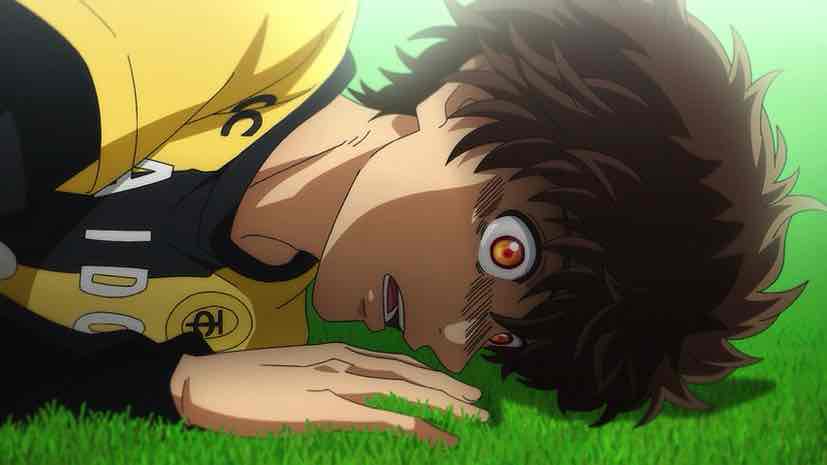
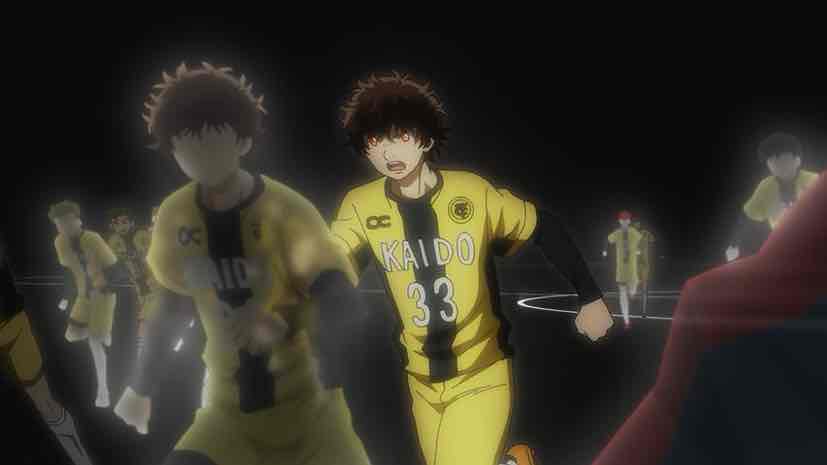
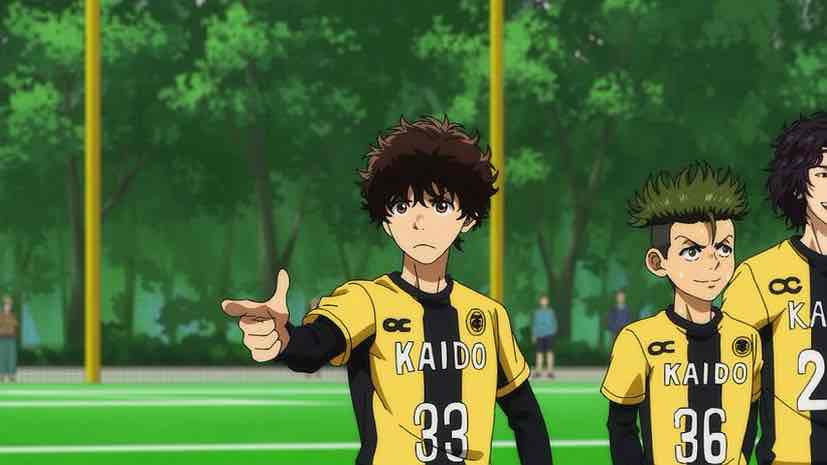
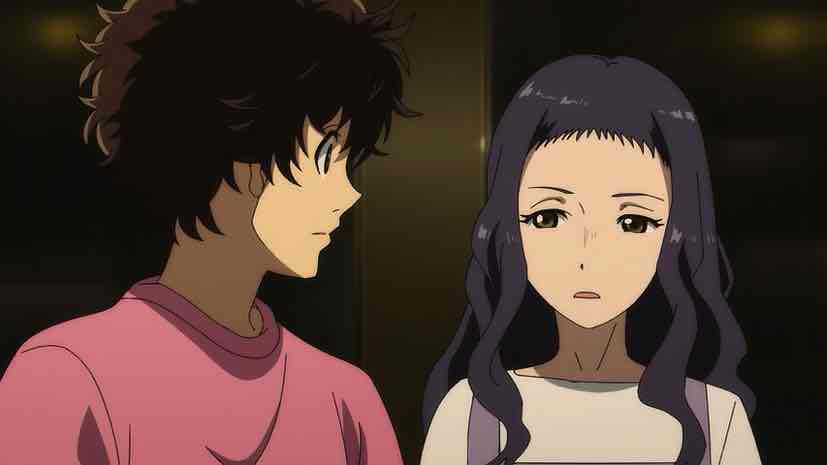
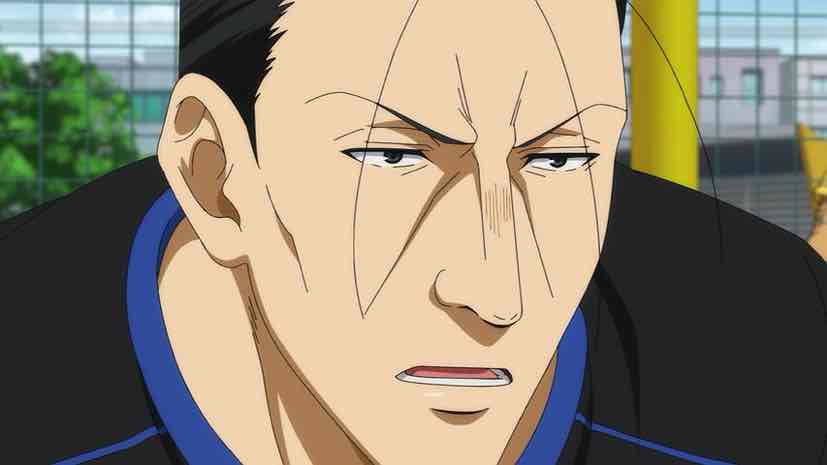
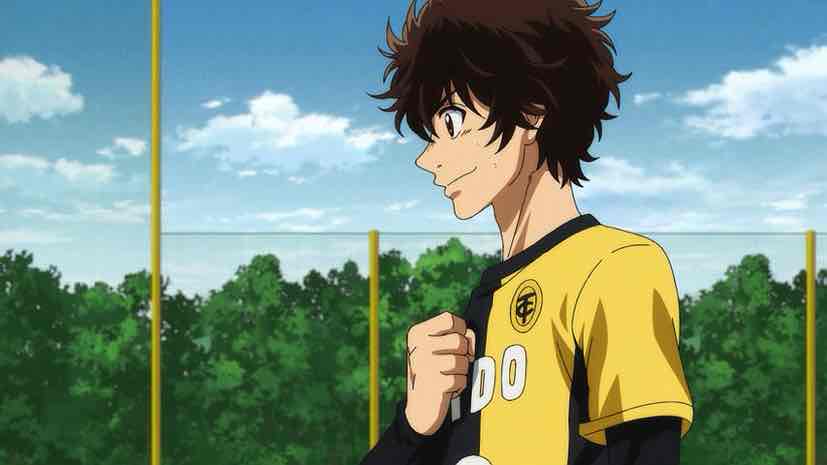
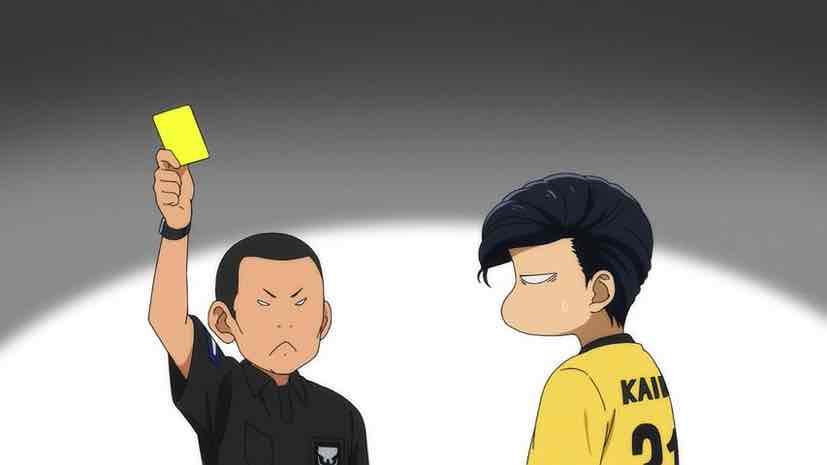
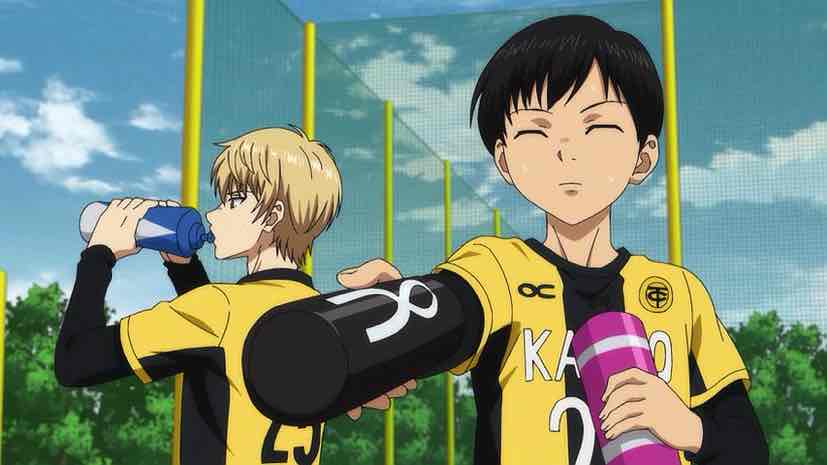
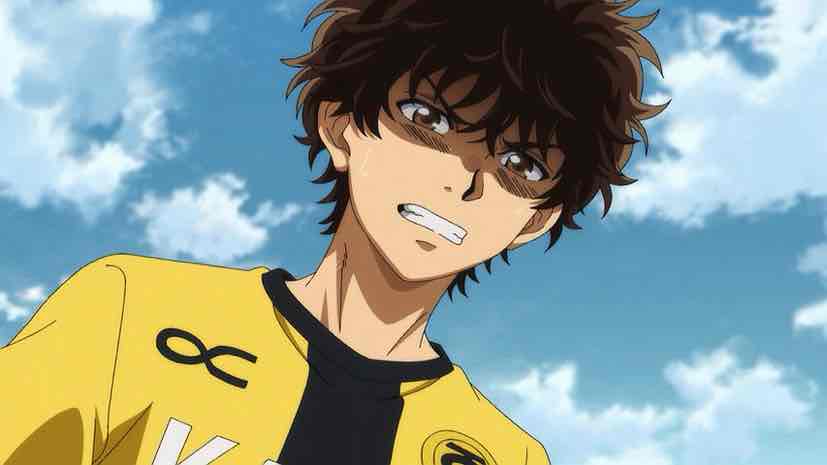
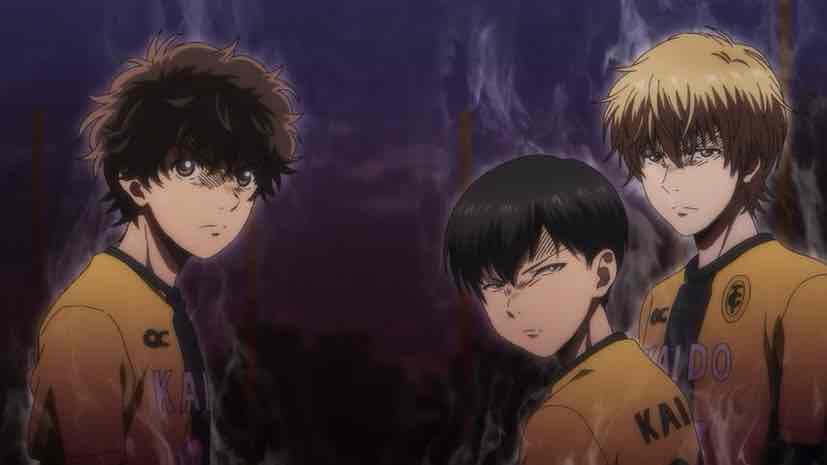
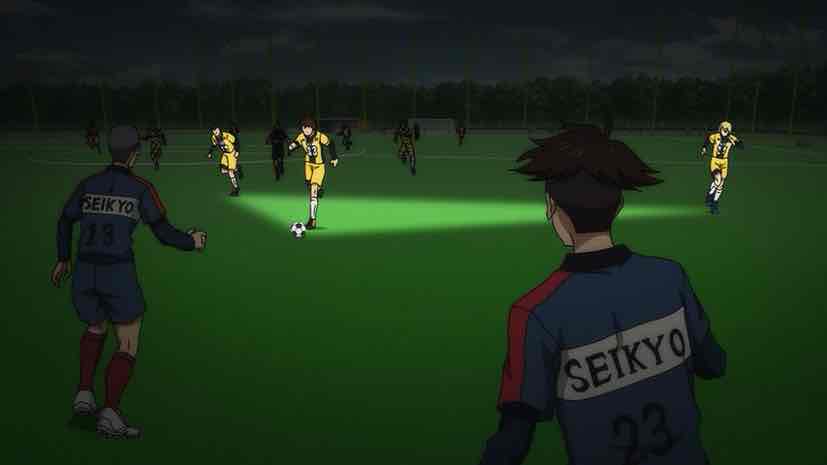
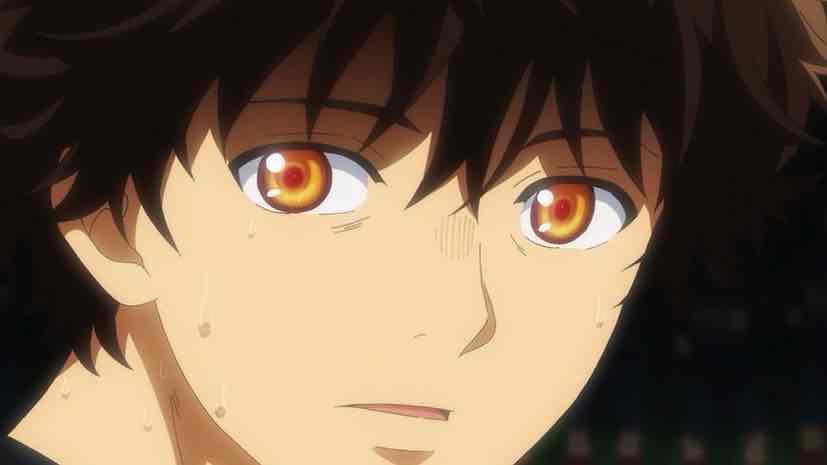
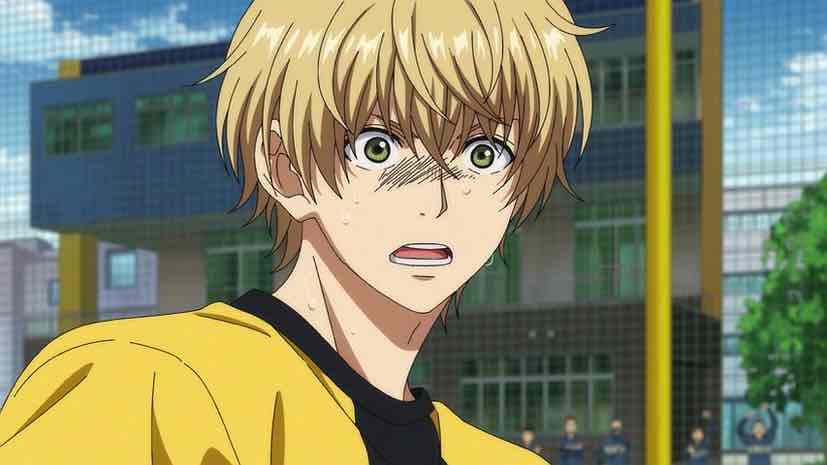
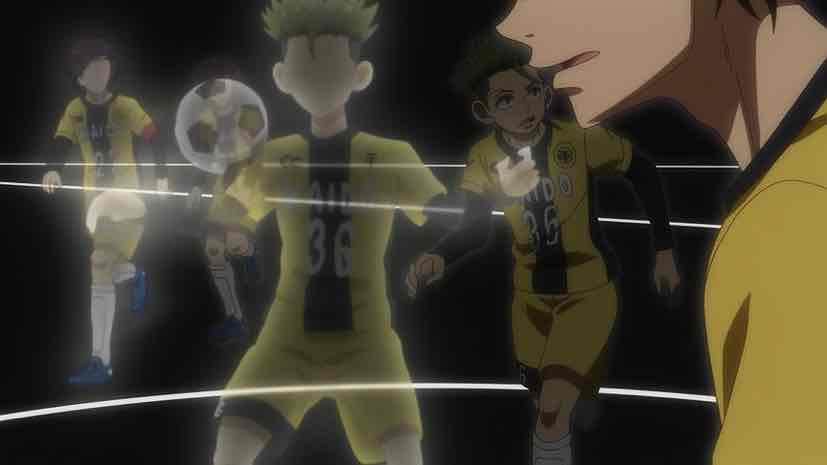
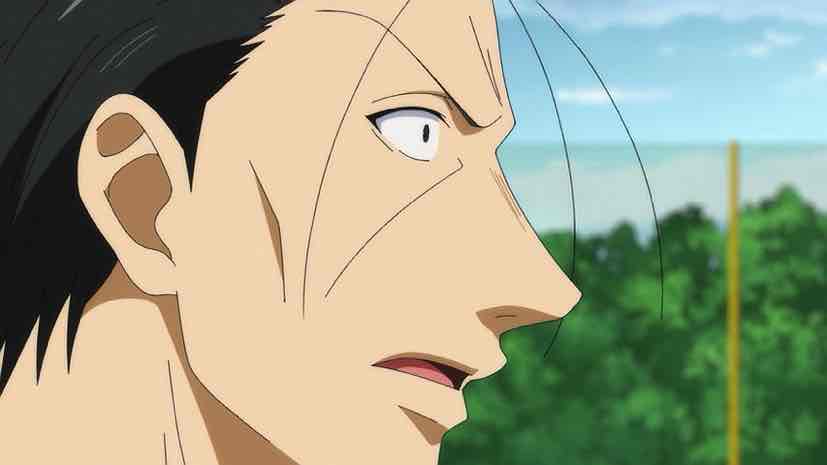
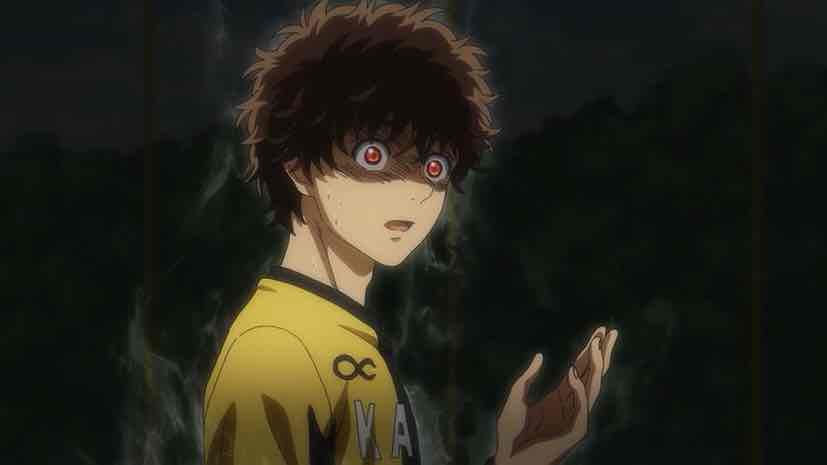
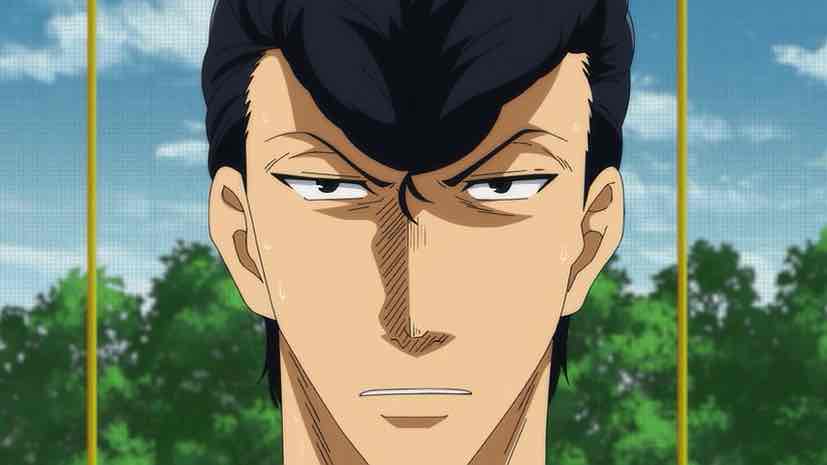
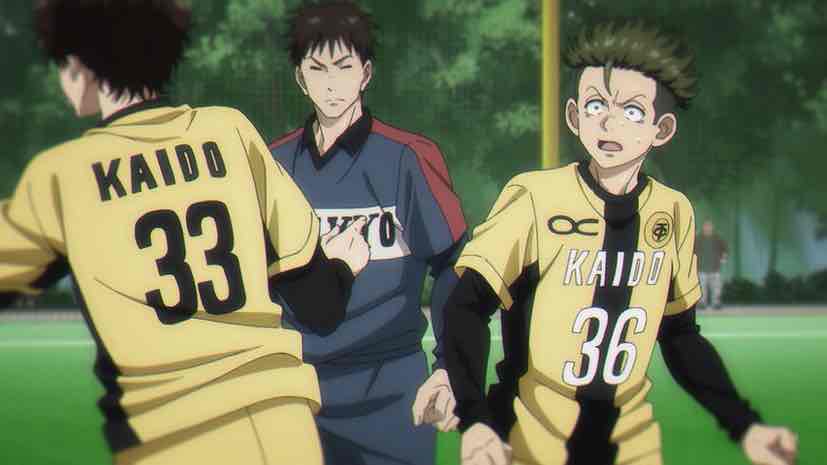
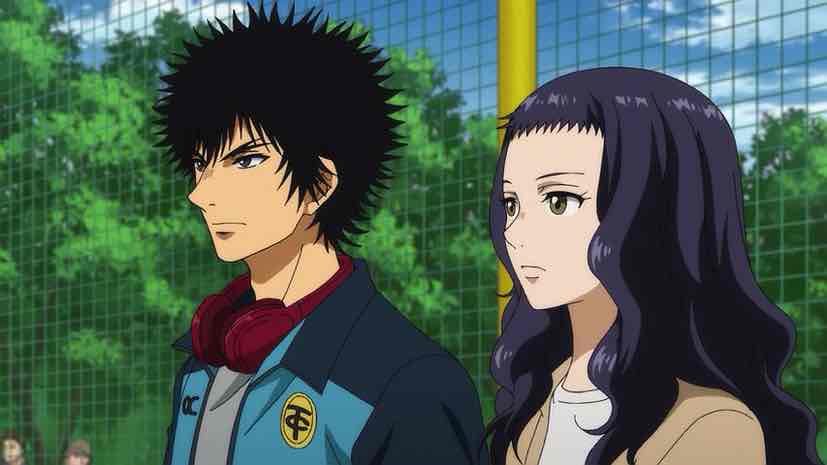
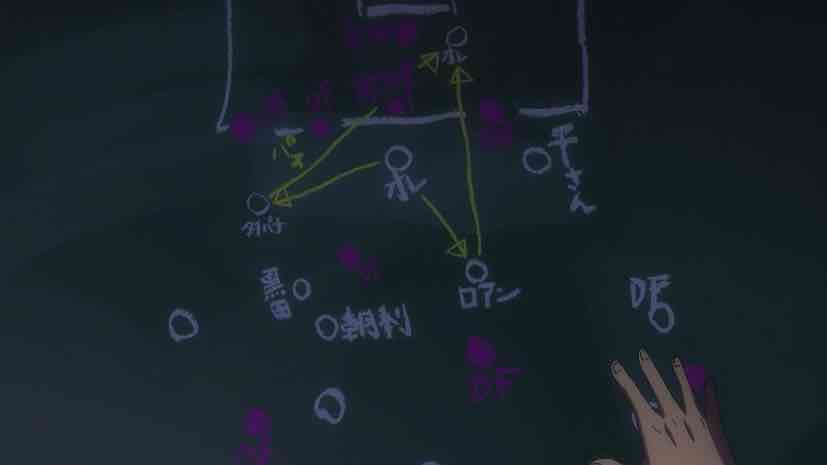
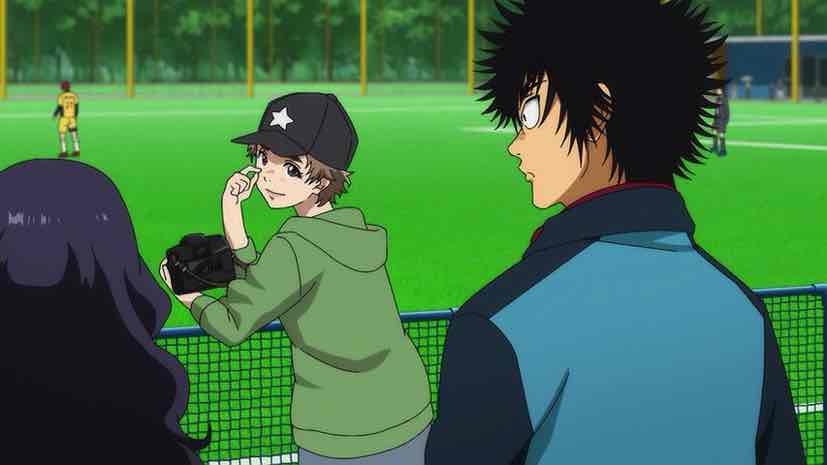
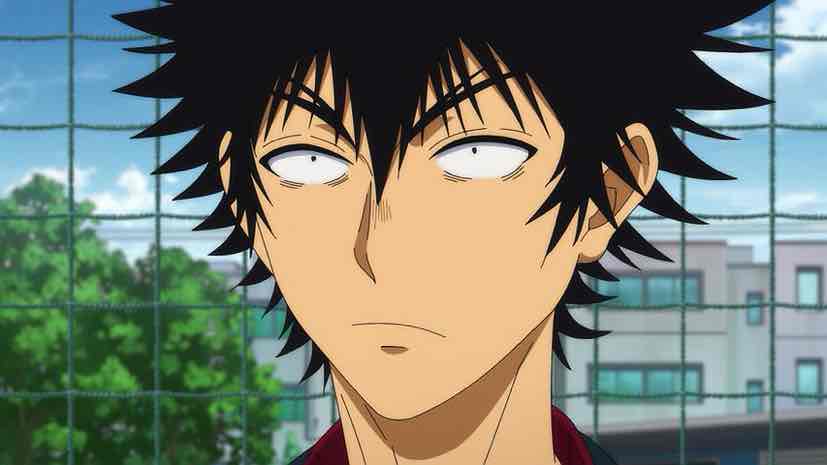
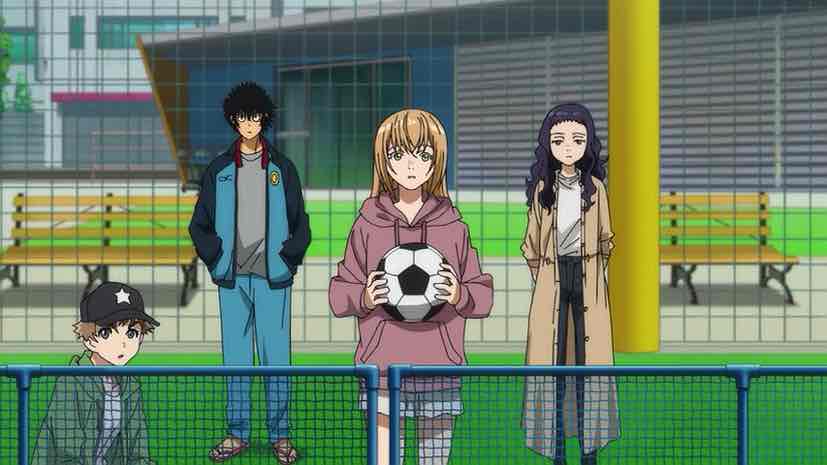
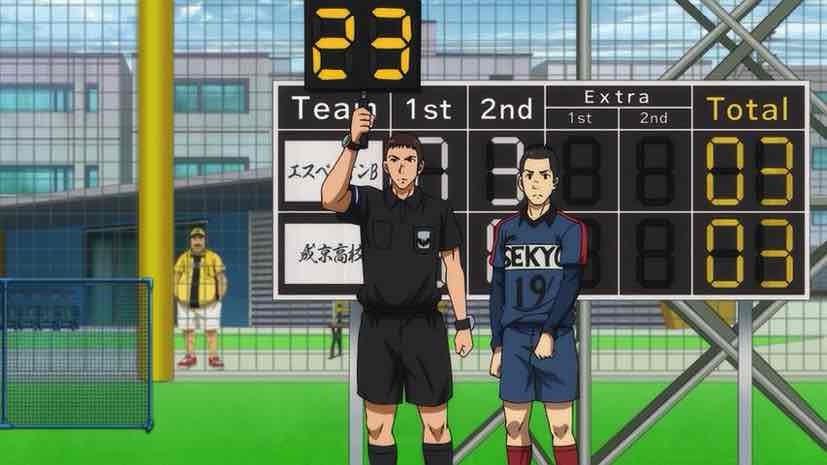
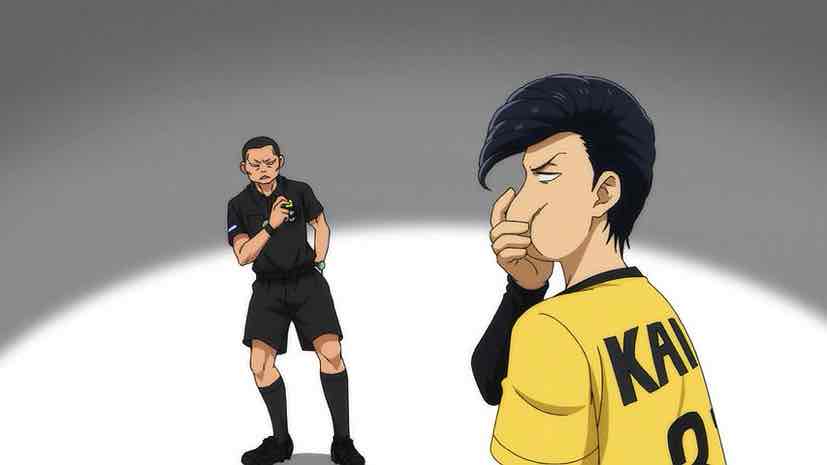
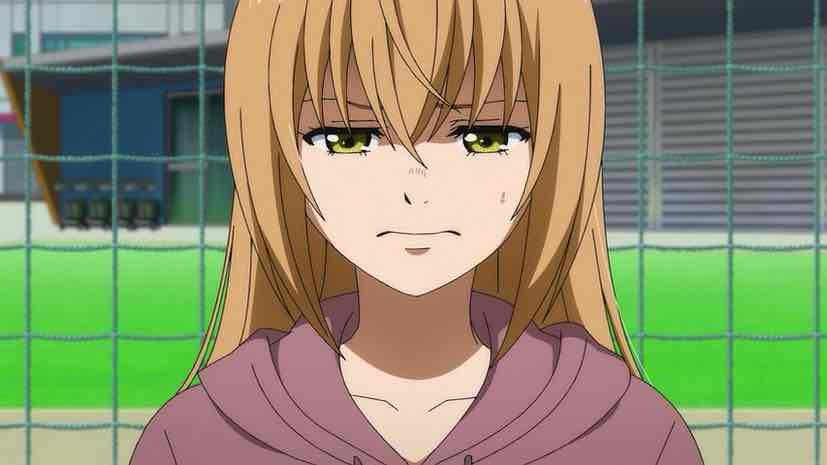
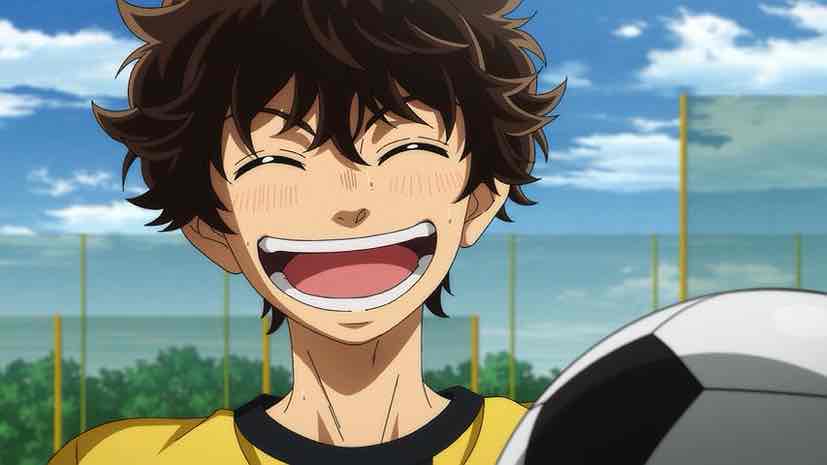
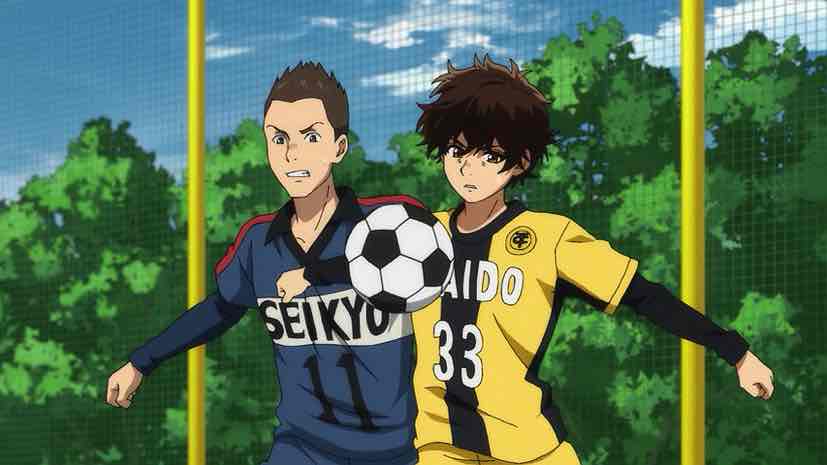
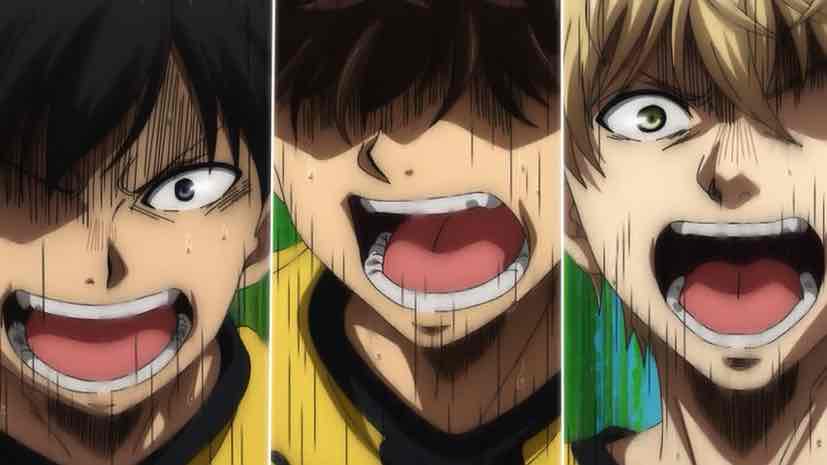
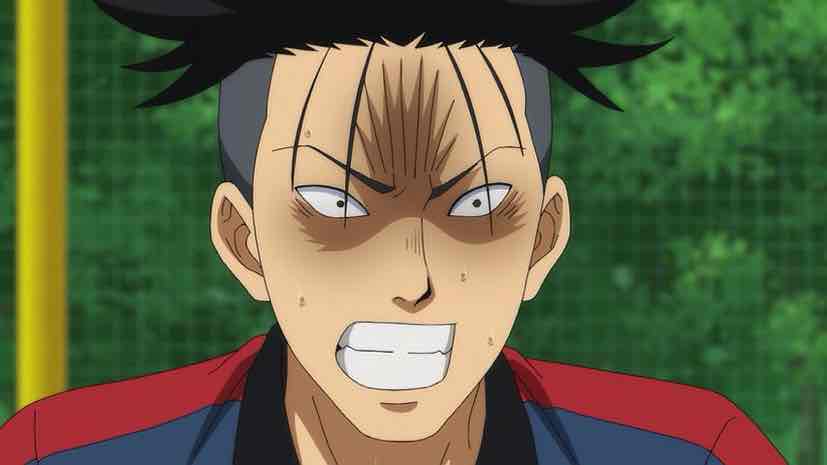
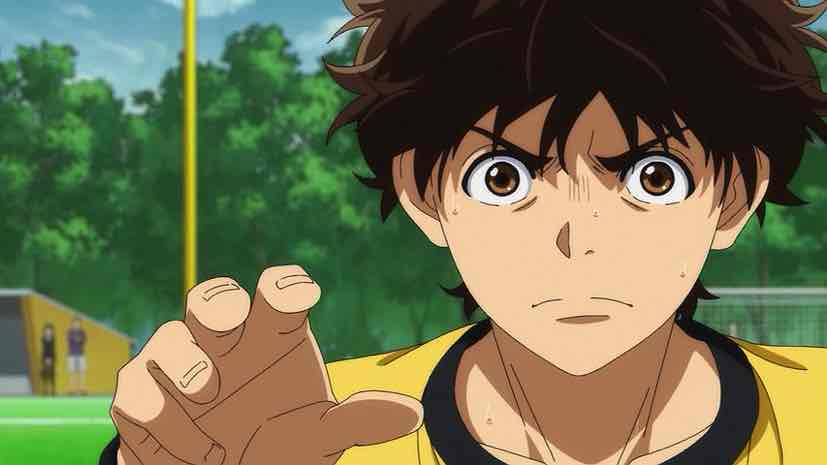
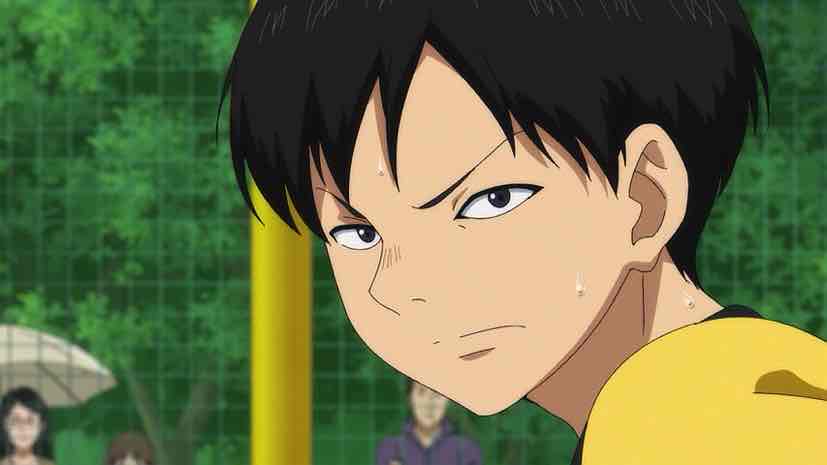
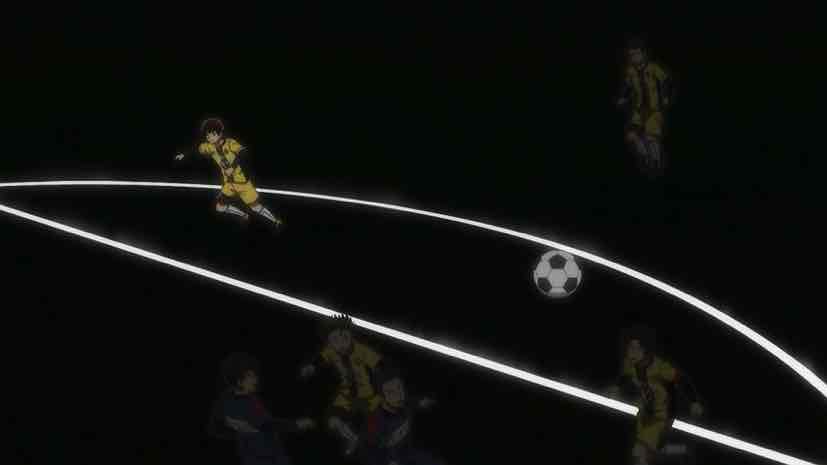
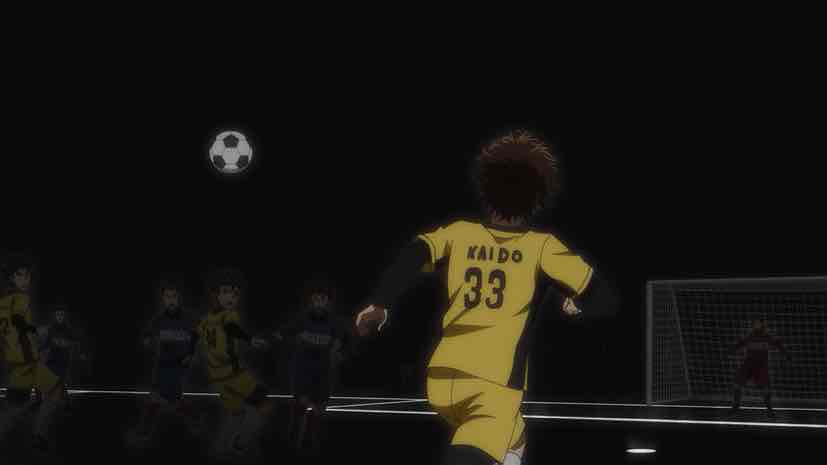
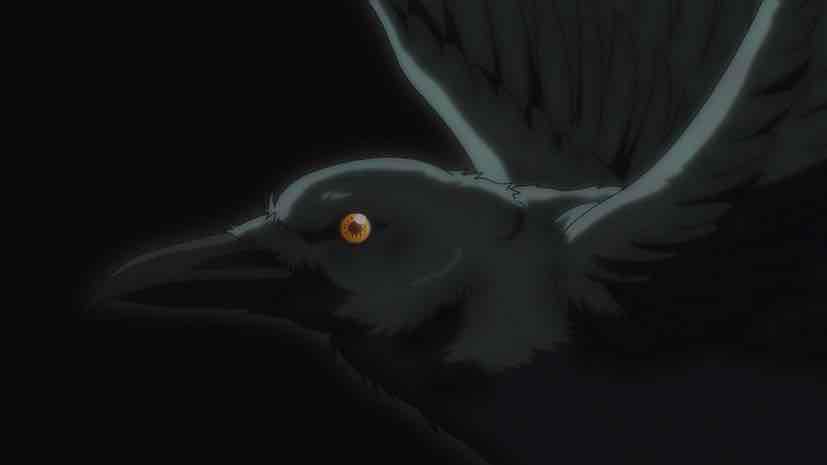
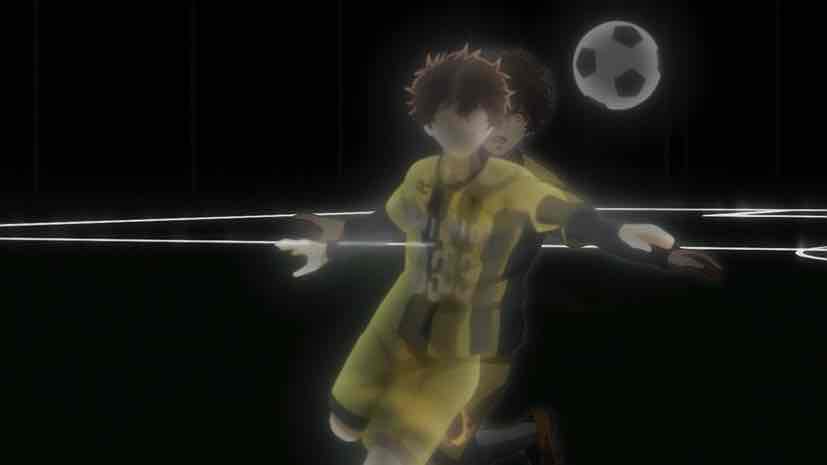
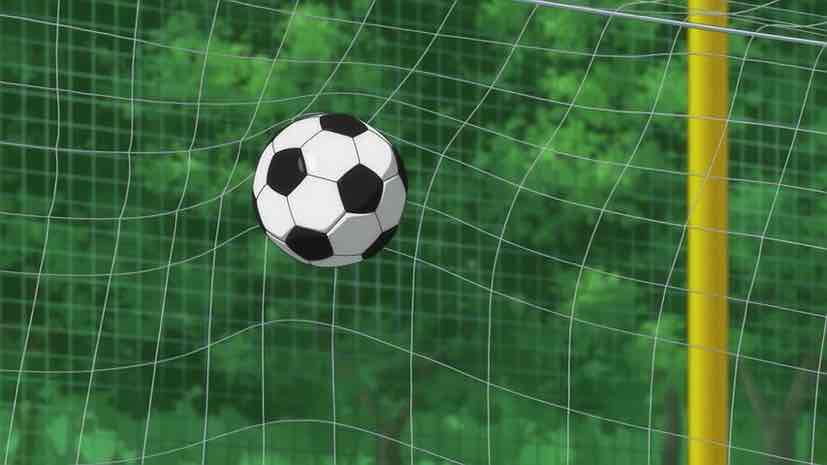
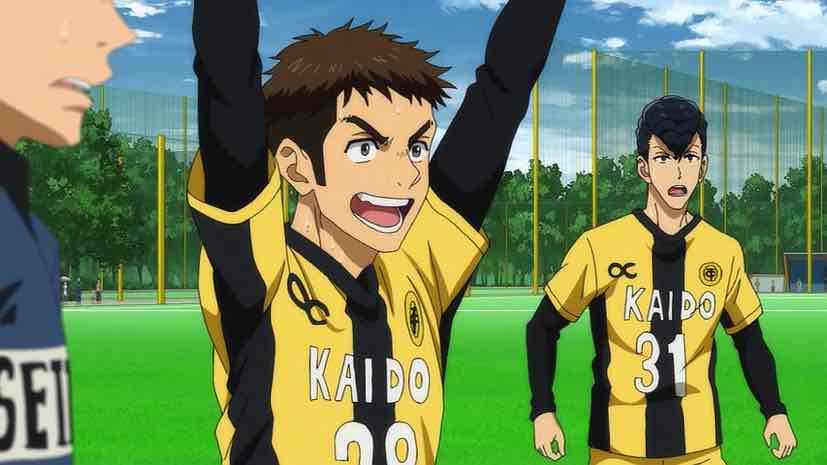
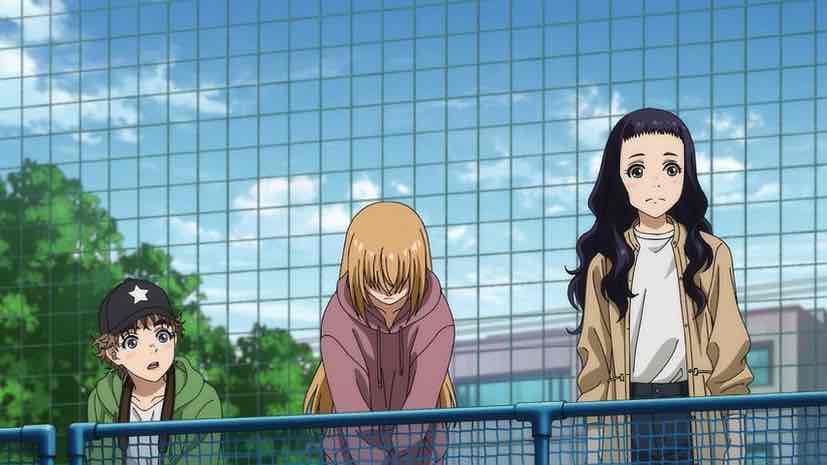
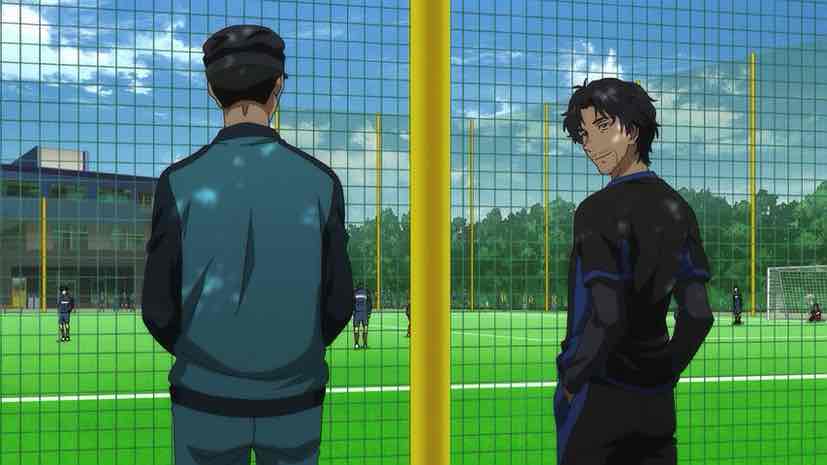
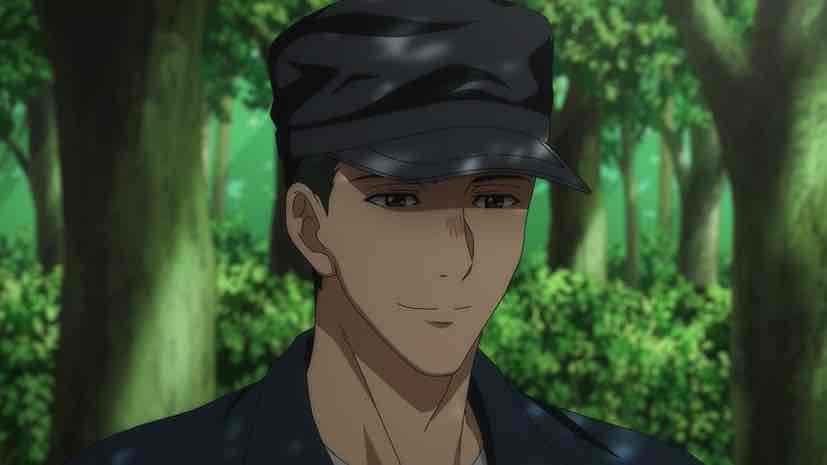
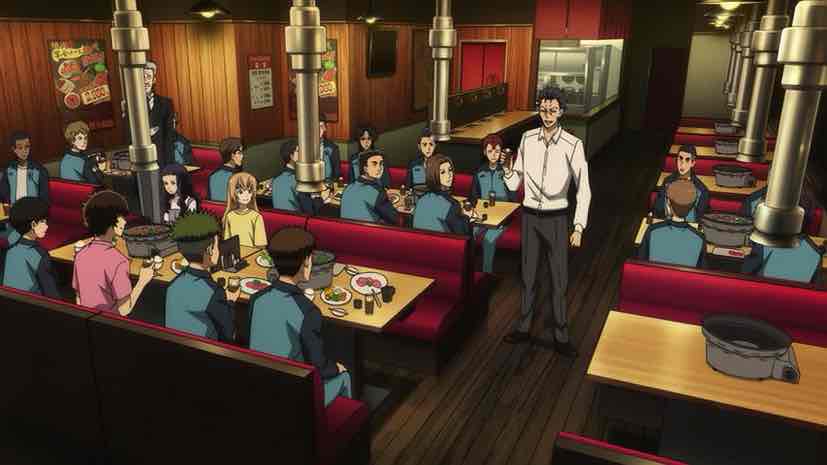
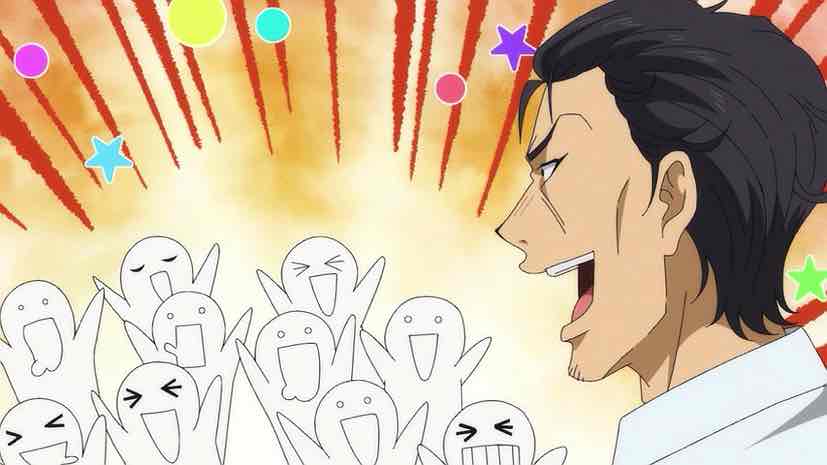
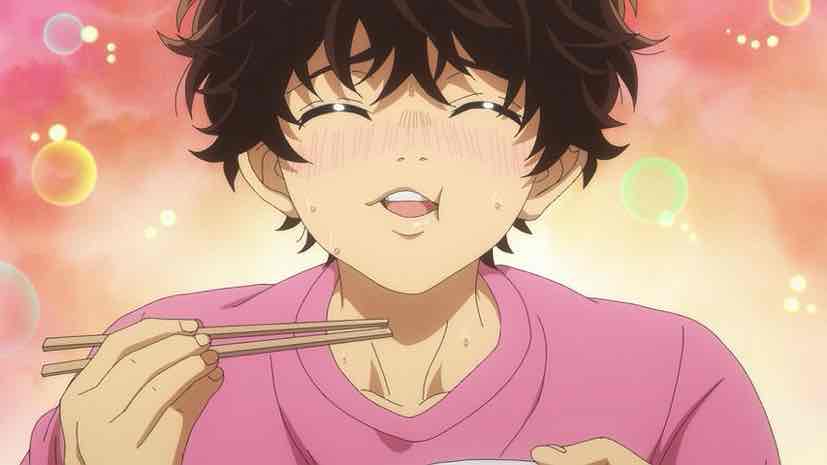
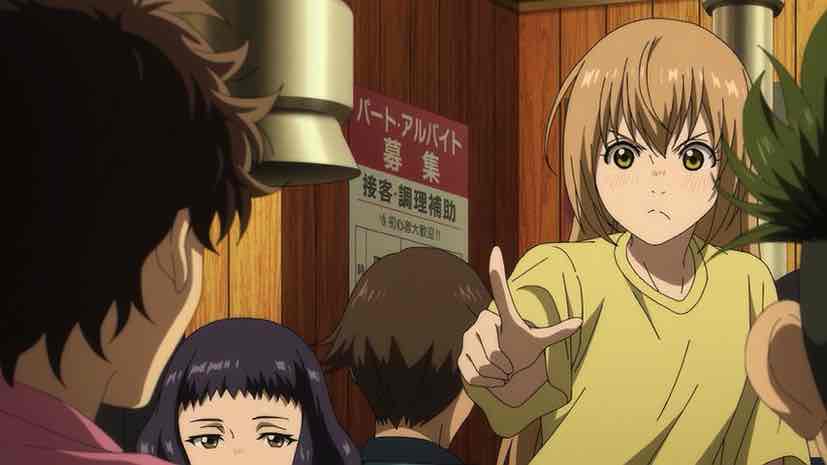
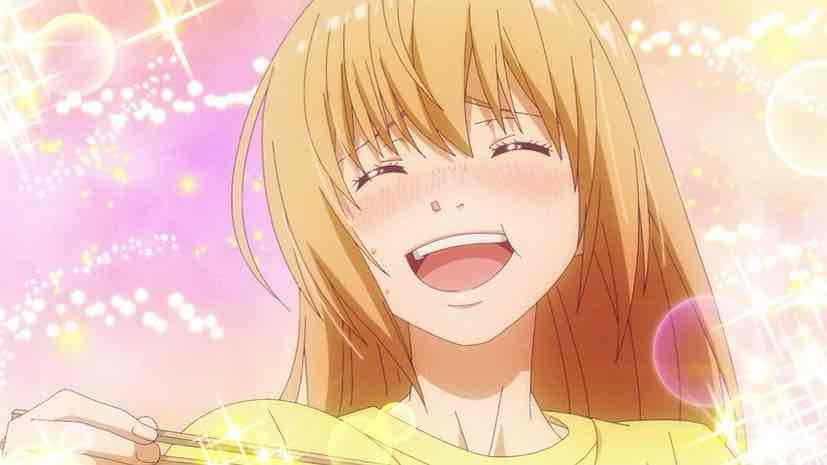
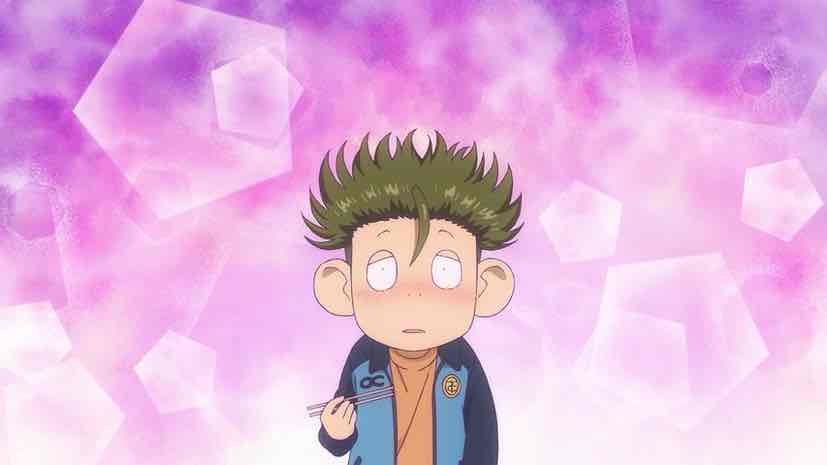
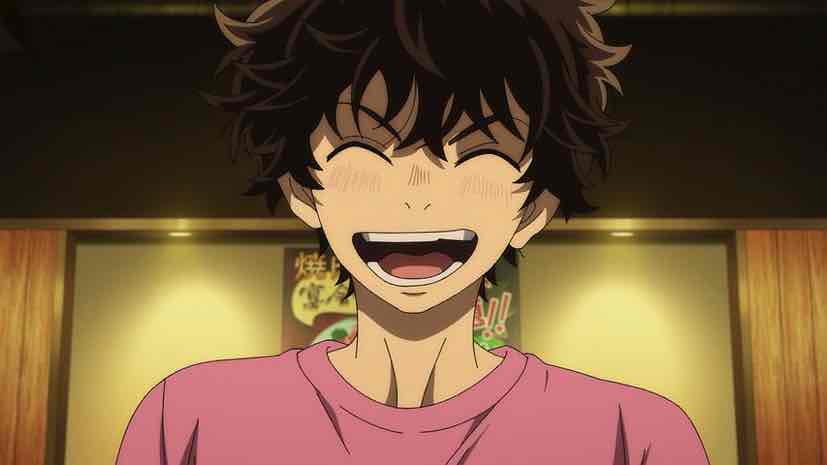
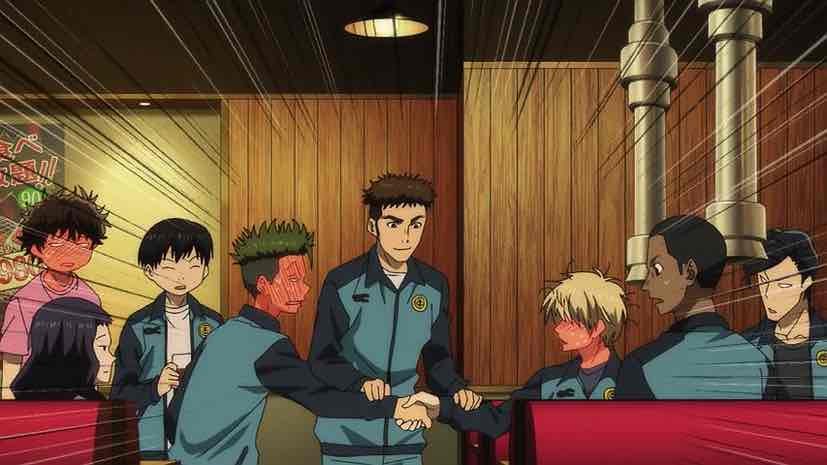
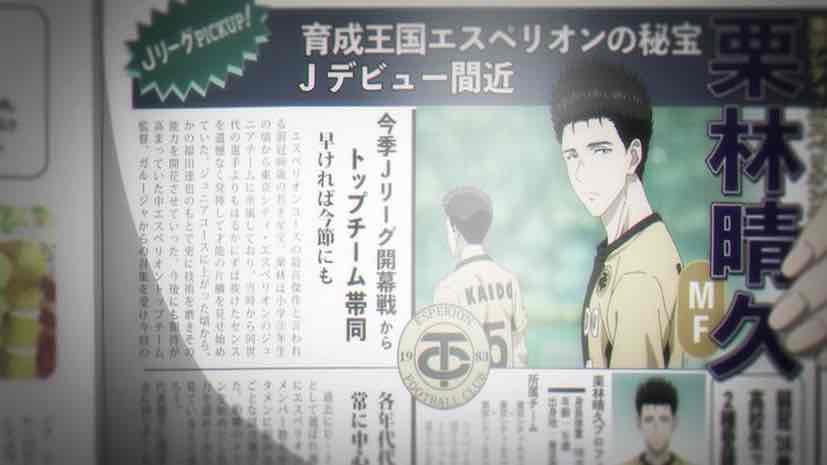
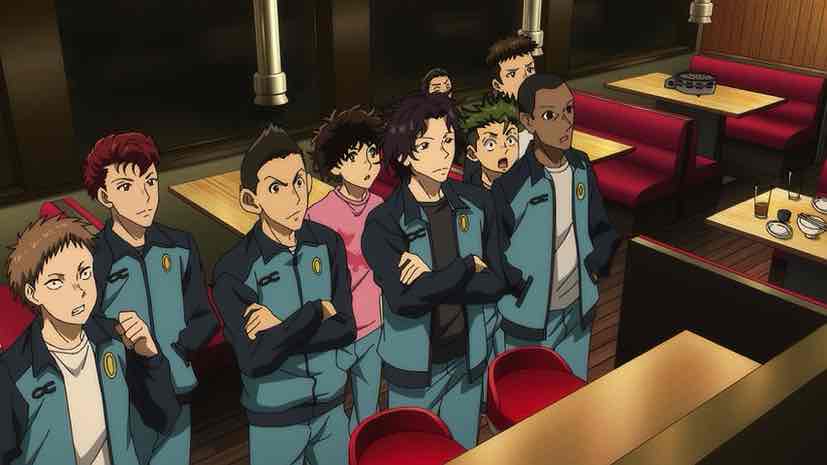
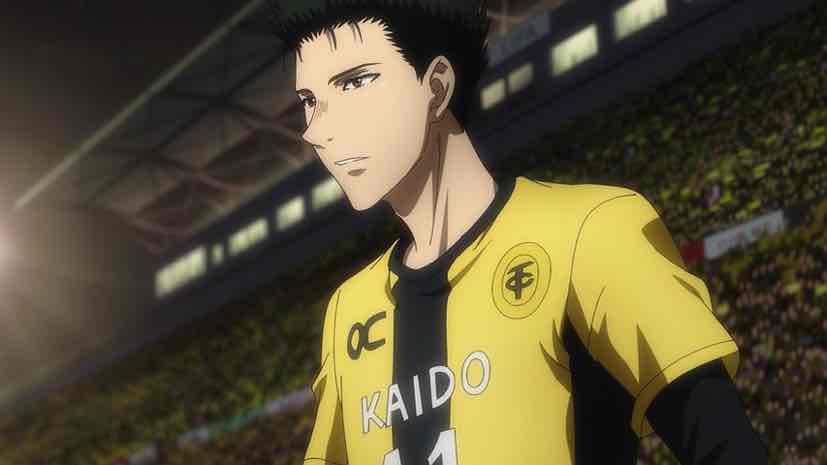
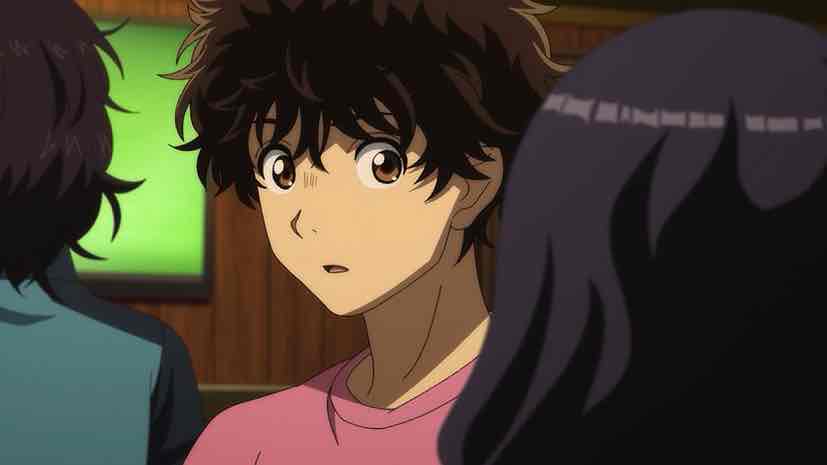
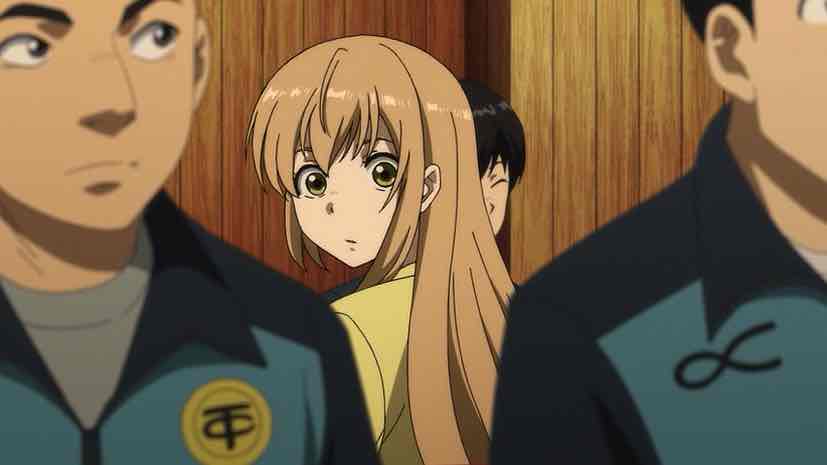


Haraga
June 26, 2022 at 1:29 amAt this point the show got into its groove and there’s nothing stopping it. I could just watch these characters for hours geeking out about football and just interacting with each other, as the web of personalities set up already is so entertaining to watch.
Riv
June 26, 2022 at 4:28 amGlad it’s continuing and with no break too. I do love a good sports anime, and I’m enjoying this one immensely. I don’t know much about soccer, so it’s been interesting learning about the tactics. I’ll hold out hope that it continues past 24 episodes.
Collectr
June 26, 2022 at 8:00 amThe pace sort-of made it clear that there would be a second season – it would have been difficult to construct a rational ending from where the series was – but it’s really fan-unfriendly (to put it mildly) not to confirm this earlier. It became clear around episode 9 of Love All Play that there was no reasonable way to wrap things up in 12 or 13 episodes, and sure enough, when I checked AniDB, the second cour was already there, with episode dates. If that could be done for Love All Play, then why not for the significantly better and more popular Ao Ashi?
Guardian Enzo
June 26, 2022 at 9:13 amWho the hell knows. How hard would it have been? It can’t have been a last minute decision.
Joshua
June 28, 2022 at 12:06 amJust a question since it’s been bugging some viewers around me. Got any opinions on the fact that Ashito is largely required to figure things out on his own with no help from coaches? Maybe it’s just coming from a lack of knowledge about coaching, but it seems like this is seriously frustrating some folks who want him to “do something”.
Guardian Enzo
June 28, 2022 at 8:00 am“Teach a boy to fish, he’ll eat for life”.
I mean, Fukuda said outright that his coaching style is to let guys figure stuff out, because it will impact them that much more. The manga made a point of showing he and Date having a conversation about it (which the anime adapted). So you can certainly take issue with the philosophy but the series makes no secrets about the circumstances.
For me, as with most elements of teaching I think you need a balance. While kids do retain stuff much better when they figure it out themselves, when one is foundering as much as Ashito was, I personally would have held his hand a little more. As, I should note, Date wanted to do. But coaching philosophies are like snowflakes, no two are alike.
Peter Griffin
June 28, 2022 at 12:23 pm“Sometimes you can just hop in the back of someone’s cab and tell them what they’re supposed to do… other times, you have to let them look out at the ocean for a while.”
I think Fukuda isn’t too concerned with Ashito figuring stuff out, he probably saw that he was smart enough to see things like those kinds of intricacies.
RE:Date & Fukuda, coach development is an underrated aspect of Ao Ashi, I don’t see that too often even in real sports. Usually, a manager or a coach will get hired & it’s generally assumed they will remain that way for the rest of their tenure, when a lot of the time they will “find themselves” & improve a lot of things in the same way a player does. I won’t give too much away about how this is portrayed in the show because I think this is somewhat of a spoiler, but you can catch glimpses of it when Date calls his assistant (Tsukishima) out for being too hasty with Ashito.